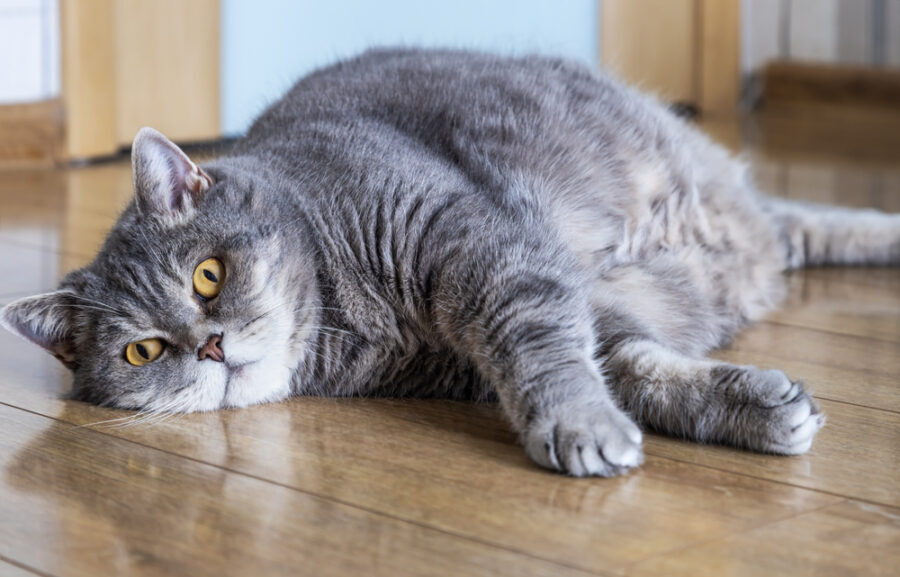A recent study shows overfeeding-induced weight gain deteriorates certain physiological parameters.
Despite being preventable, the rising incidence of obesity in cats is an issue of concern. Amidst extensive research focusing on weight loss interventions, a recent study delves into the less-explored territory of the effects of weight gain and overfeeding in cats. The objective of this study was to unravel the multifaceted effects of overfeeding on feline well-being, ranging from digestive health to the composition of the fecal microbiota.
Study Details
The study was conducted over 18 weeks with eleven lean adult spayed female cats. The aim was to understand the repercussions of overeating on feline physiology. The cats were initially fed a balanced diet during a 2-week baseline phase to establish the caloric intake required to maintain their body weight. Subsequently, they were given free access to the same diet, leading to induced weight gain.
Key Findings
The study revealed a significant decrease in apparent total tract digestibility (ATTD) of essential nutrients, including dry matter, organic matter, crude protein, fat, and gross energy. This reduction in ATTD indicated an impaired ability to efficiently absorb and utilize nutrients, shedding light on the detrimental consequences of overfeeding.
Gastrointestinal Transit Time (GTT), a crucial factor in digestive health, also decreased with overfeeding and weight gain. This suggests potential disruptions in the cats’ digestive processes, emphasizing the importance of maintaining a balanced diet to support optimal GTT.
Microbial Changes
The study explored the impact of overfeeding on the fecal microbiota as well, revealing significant alterations in bacterial composition. While alpha diversity measures remained unchanged, beta diversity, reflecting the overall microbial community structure, was notably affected. Sixteen bacterial genera, including Bifidobacterium, Collinsella, and Erysipelatoclostridium, exhibited changes in relative abundance, indicating a shift in the delicate balance of the gut microbiota.
The study highlights the connection between overfeeding, weight gain, and feline health. The observed reductions in ATTD and GTT underscore the importance of mindful feeding practices to mitigate potential health risks associated with obesity. The alterations in the fecal microbiota composition further emphasize the systemic impact of dietary choices on a cat’s overall well-being.
Understanding the implications of overfeeding goes beyond the visible aspects of weight gain and involves changes taking place inside the body. Armed with this knowledge, we can make informed decisions about feline diets, ensuring a balance that promotes longevity, wellness, and an enhanced quality of life.








